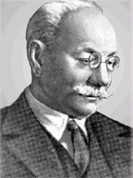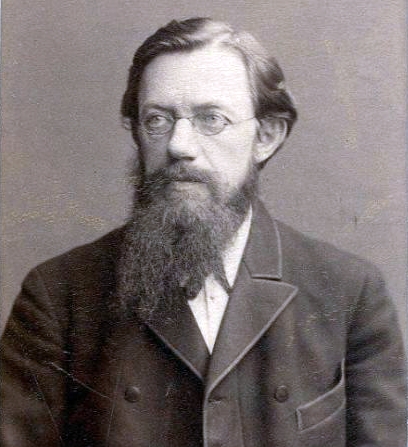|
Yuly Shokalsky
Yuly Mikhailovich Shokalsky (russian: Юлий Михайлович Шокальский; October 17, 1856 in Saint Petersburg – March 26, 1940 in Leningrad) was a Russian oceanographer, cartographer, and geographer. Career A grandson of Anna Kern, Pushkin's celebrated mistress, Shokalsky graduated from the Naval Academy in 1880 and made a career in the Imperial Russian Navy, helping establish the Sevastopol Marine Observatory and rising to the rank of Lieutenant-General in 1912. At the same time, he developed interest in limnology and meteorology and became the most prolific Russian author on the subjects. In the ''Marine Miscellanies'' alone, he published some 300 articles. Shokalsky's most important monograph was ''Oceanography'' (1917), a collection of his lectures which examined connection between meteorology and hydrology and emphasized the importance of monitoring marine phenomena in order to understand global changes of climate. Shokalsky insisted on differentiat ... [...More Info...] [...Related Items...] OR: [Wikipedia] [Google] [Baidu] |
Shokalsky Strait
Shokalsky Strait (russian: Пролив Шокальского) is a strait in Severnaya Zemlya, Russia. Geography The Shokalsky Strait is an up to a 50 km-wide strait that separates Bolshevik Island from October Revolution Island, connecting the Kara Sea in the west with the Laptev Sea in the east. It is named after Russian oceanographer Yuly Shokalsky Some fjords of Severnaya Zemlya have their mouths in the strait, such as Marat Fjord in October Revolution Island's eastern shore, as well as Partizan Fjord, Spartak Fjord and Thaelmann Fjord in Bolshevik Island northwestern coast. Cape Baranov and its adjacent Prima Polar Station are located in the northern part of Bolshevik Island facing the Shokalsky Strait.GoogleEarth The Krasnoflotskiye Islands are located at the western end of the strait.GoogleEarth See also *Mikoyan Bay Mikoyan Bay (russian: Залив Микояна, ''Zaliv Mikoyana'') is a bay in Severnaya Zemlya, Krasnoyarsk Krai, Russia. GoogleEarth It is c ... [...More Info...] [...Related Items...] OR: [Wikipedia] [Google] [Baidu] |
Soviet Geographers
This list of Russian Earth scientists includes the notable geographers, geologists, oceanographers, meteorologists, ecologists and other representatives of Earth sciences from the Russian Federation, the Soviet Union, the Russian Empire and other predecessor states of Russia. Alphabetical list __NOTOC__ A * Vladimir Abazarov, geologist, discoverer of Samotlor oil field, the largest Russian oil field * Dmitry Anuchin, anthropologist and geographer, coined the term " anthroposphere", determined the location of the Volga river source * Andrey Arkhangelsky, geologist B * Karl Baer, naturalist, formulated the geological Baer's law on river erosion, co-founder of the Russian Geographical Society * Valeri Barsukov, geologist *Vladimir Belousov, geologist *Lev Berg, determined the depth of Central Asian lakes, including Balkhash Lake and Issyk Kul, a head of the Soviet Geographical Society * Yuri Bilibin, geologist, studied placer geology and organized expeditions that dis ... [...More Info...] [...Related Items...] OR: [Wikipedia] [Google] [Baidu] |
Geographers From The Russian Empire
A geographer is a physical scientist, social scientist or humanist whose area of study is geography, the study of Earth's natural environment and human society, including how society and nature interacts. The Greek prefix "geo" means "earth" and the Greek suffix, "graphy," meaning "description," so a geographer is someone who studies the earth. The word "geography" is a Middle French word that is believed to have been first used in 1540. Although geographers are historically known as people who make maps, map making is actually the field of study of cartography, a subset of geography. Geographers do not study only the details of the natural environment or human society, but they also study the reciprocal relationship between these two. For example, they study how the natural environment contributes to human society and how human society affects the natural environment. In particular, physical geographers study the natural environment while human geographers study human societ ... [...More Info...] [...Related Items...] OR: [Wikipedia] [Google] [Baidu] |
Cartographers From The Russian Empire
Cartography (; from grc, χάρτης , "papyrus, sheet of paper, map"; and , "write") is the study and practice of making and using maps. Combining science, aesthetics and technique, cartography builds on the premise that reality (or an imagined reality) can be modeled in ways that communicate spatial information effectively. The fundamental objectives of traditional cartography are to: * Set the map's agenda and select traits of the object to be mapped. This is the concern of map editing. Traits may be physical, such as roads or land masses, or may be abstract, such as toponyms or political boundaries. * Represent the terrain of the mapped object on flat media. This is the concern of map projections. * Eliminate characteristics of the mapped object that are not relevant to the map's purpose. This is the concern of generalization. * Reduce the complexity of the characteristics that will be mapped. This is also the concern of generalization. * Orchestrate the elements of the ... [...More Info...] [...Related Items...] OR: [Wikipedia] [Google] [Baidu] |
Russian Hydrographers
Russian(s) refers to anything related to Russia, including: *Russians (, ''russkiye''), an ethnic group of the East Slavic peoples, primarily living in Russia and neighboring countries *Rossiyane (), Russian language term for all citizens and people of Russia, regardless of ethnicity *Russophone, Russian-speaking person (, ''russkogovoryashchy'', ''russkoyazychny'') *Russian language, the most widely spoken of the Slavic languages *Russian alphabet *Russian cuisine *Russian culture *Russian studies Russian may also refer to: * Russian dressing *''The Russians'', a book by Hedrick Smith *Russian (comics), fictional Marvel Comics supervillain from ''The Punisher'' series * Russian (solitaire), a card game * "Russians" (song), from the album ''The Dream of the Blue Turtles'' by Sting *"Russian", from the album ''Tubular Bells 2003'' by Mike Oldfield *"Russian", from the album '' '' by Caravan Palace *Nik Russian, the perpetrator of a con committed in 2002 *The South African name for ... [...More Info...] [...Related Items...] OR: [Wikipedia] [Google] [Baidu] |
Russian Oceanographers
This list of Russian Earth scientists includes the notable geographers, geologists, oceanographers, meteorologists, ecologists and other representatives of Earth sciences from the Russian Federation, the Soviet Union, the Russian Empire and other predecessor states of Russia. Alphabetical list __NOTOC__ A * Vladimir Abazarov, geologist, discoverer of Samotlor oil field, the largest Russian oil field *Dmitry Anuchin, anthropologist and geographer, coined the term "anthroposphere", determined the location of the Volga river source * Andrey Arkhangelsky, geologist B *Karl Baer, naturalist, formulated the geological Baer's law on river erosion, co-founder of the Russian Geographical Society *Valeri Barsukov, geologist *Vladimir Belousov, geologist *Lev Berg, determined the depth of Central Asian lakes, including Balkhash Lake and Issyk Kul, a head of the Soviet Geographical Society *Yuri Bilibin, geologist, studied placer geology and organized expeditions that discovered gold d ... [...More Info...] [...Related Items...] OR: [Wikipedia] [Google] [Baidu] |
Scientists From Saint Petersburg
A scientist is a person who conducts scientific research to advance knowledge in an area of the natural sciences. In classical antiquity, there was no real ancient analog of a modern scientist. Instead, philosophers engaged in the philosophical study of nature called natural philosophy, a precursor of natural science. Though Thales (circa 624-545 BC) was arguably the first scientist for describing how cosmic events may be seen as natural, not necessarily caused by gods,Frank N. Magill''The Ancient World: Dictionary of World Biography'', Volume 1 Routledge, 2003 it was not until the 19th century that the term ''scientist'' came into regular use after it was coined by the theologian, philosopher, and historian of science William Whewell in 1833. In modern times, many scientists have advanced degrees in an area of science and pursue careers in various sectors of the economy such as academia, industry, government, and nonprofit environments.'''' History The ... [...More Info...] [...Related Items...] OR: [Wikipedia] [Google] [Baidu] |
1940 Deaths
Year 194 ( CXCIV) was a common year starting on Tuesday (link will display the full calendar) of the Julian calendar. At the time, it was known as the Year of the Consulship of Septimius and Septimius (or, less frequently, year 947 ''Ab urbe condita''). The denomination 194 for this year has been used since the early medieval period, when the Anno Domini calendar era became the prevalent method in Europe for naming years. Events By place Roman Empire * Emperor Septimius Severus and Decimus Clodius Septimius Albinus Caesar become Roman Consuls. * Battle of Issus: Septimius Severus marches with his army (12 legions) to Cilicia, and defeats Pescennius Niger, Roman governor of Syria. Pescennius retreats to Antioch, and is executed by Severus' troops. * Septimius Severus besieges Byzantium (194–196); the city walls suffer extensive damage. Asia * Battle of Yan Province: Warlords Cao Cao and Lü Bu fight for control over Yan Province; the battle lasts for over 100 ... [...More Info...] [...Related Items...] OR: [Wikipedia] [Google] [Baidu] |
1856 Births
Events January–March * January 8 – Borax deposits are discovered in large quantities by John Veatch in California. * January 23 – American paddle steamer SS ''Pacific'' leaves Liverpool (England) for a transatlantic voyage on which she will be lost with all 186 on board. * January 24 – U.S. President Franklin Pierce declares the new Free-State Topeka government in "Bleeding Kansas" to be in rebellion. * January 26 – First Battle of Seattle: Marines from the suppress an indigenous uprising, in response to Governor Stevens' declaration of a "war of extermination" on Native communities. * January 29 ** The 223-mile North Carolina Railroad is completed from Goldsboro through Raleigh and Salisbury to Charlotte. ** Queen Victoria institutes the Victoria Cross as a British military decoration. * February ** The Tintic War breaks out in Utah. ** The National Dress Reform Association is founded in the United States to promote "rat ... [...More Info...] [...Related Items...] OR: [Wikipedia] [Google] [Baidu] |
Aleksey Tillo
Aleksey Tillo (russian: Алексей Андреевич Тилло; Alexei Andreyevitch Tillo) (25 November ( O.S. November 13), 1839, Kiev Governorate – 11 January ( O.S. December 30), 1900, Saint Petersburg) was a prominent Russian geographer, cartographer, land surveyor, lieutenant general of the Russian Imperial Army (1894). Aleksey Tillo's grandfather was a French Huguenot, but his father was a citizen of the Russian Empire. Career Aleksey graduated from the Mikhailovskaya Artillery Academy (1862) and Department of Geodesy of the General Staff Academy in Saint Petersburg (1866). His greatest achievement was a hypsometric map of the European part of Russia published in 1889. It was the first map of its kind that showed elevation correctly. [...More Info...] [...Related Items...] OR: [Wikipedia] [Google] [Baidu] |
Akademik Shokalskiy
MV ''Akademik Shokalskiy'' (russian: Академик Шокальский) is an ''Akademik Shuleykin''-class ice-strengthened ship, built in Finland in 1982 and originally used for oceanographic research. In 1998 she was fully refurbished to serve as a research ship for Arctic and Antarctic work; she is used also for expedition cruising. She is named after the Russian oceanographer Yuly Shokalsky. For two weeks from 25 December 2013 ''Akademik Shokalskiy'' was trapped in thick ice in Commonwealth Bay, Antarctica, while operating an expedition for the Australasian Antarctic Expedition 2013–2014. The scientists and passengers were evacuated on 2 January. Use as cruise ship The ship has two passenger decks, with dining rooms, a bar, a library, and a sauna, and accommodates 54 passengers. She is owned by the Russian Federation's Far Eastern Hydrometeorological Research Institute, Vladivostok and was previously chartered to Aurora Expeditions, an Australian expedition cruise ... [...More Info...] [...Related Items...] OR: [Wikipedia] [Google] [Baidu] |







